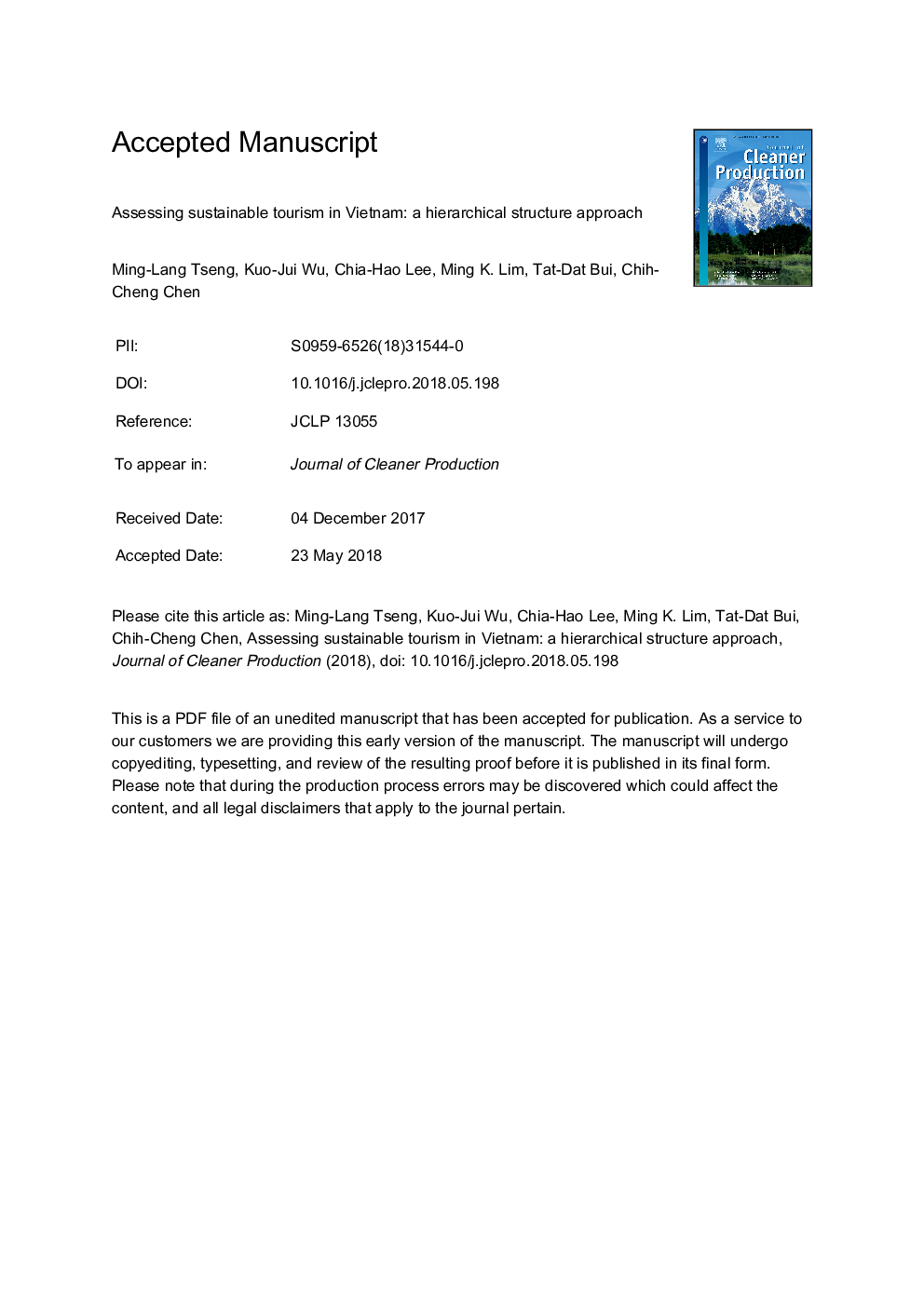| Article ID | Journal | Published Year | Pages | File Type |
|---|---|---|---|---|
| 8094060 | Journal of Cleaner Production | 2018 | 30 Pages |
Abstract
Sustainable tourism has been receiving increasing attention from the academic and business sectors due to uncertainty, environmental pollution, and the delivery of uncreative tourism products and fragmented, temporary and inadequate services. However, due to the uncertainties, collaboration is a critical attribute in the tourism industry in terms of sustainability. Although many attributes have been addressed in the literature, a comprehensive measurement structure remains unexplored in this sector. This study attempts to evaluate the causal inter-relationships among the attributes, explore the hierarchical inter-relationships and identify the powers that drive dependence among the attributes to improve sustainable performance by employing a combined method of fuzzy set theory, a decision-making trial and evaluation and interpretive structural modeling. A set of four aspects-socio-cultures, economics, environments, and collaborations-that include 24 criteria are introduced from the literature and are based on experts' opinions. The results obtained show that collaboration is the strongest causal attribute driving the others in sustainable tourism, revealing that community well-being, guest cultures, information sharing, transparency, and incentive alignment have exhibited the greatest levels of driving and dependence power in the structure of the industry. These attributes are the most effective at enhancing the industry's sustainable performance. In addition, theoretical and managerial implications are discussed to enhance the value of our findings.
Related Topics
Physical Sciences and Engineering
Energy
Renewable Energy, Sustainability and the Environment
Authors
Ming-Lang Tseng, Kuo-Jui Wu, Chia-Hao Lee, Ming K. Lim, Tat-Dat Bui, Chih-Cheng Chen,
